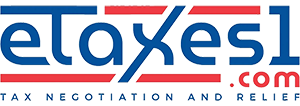Liens & Levys The good, the bad & the ugly
What actions can the IRS take when they claim you owe Federal taxes? For starters, they can file a Notice of Federal tax lien that is recorded in the county in which you reside. The IRS may also service a Notice of Levy upon your employer to attach your wages or upon your bank to attach any funds you have deposited. And, occasionally, the IRS may seize an asset such as a vehicle, a business or even a home.
First, what is the difference between a lien and a levy? A lien is merely a paper document. By itself it does little to your everyday life, but it does put a negative mark on your credit report. As a practical matter, unless you are a homeowner, it doesn’t do much damage. The lien attaches to all property you own or acquire after the fact. The lien is only valid in the county in which it is filed, so if you own property in Texas, but the lien was filed in Los Angeles County, CA, you can sell that property free and clear of the lien.
It is difficult, although not impossible to buy a home if a lien has been filed against you. Most lenders choose not to lend assuming that you are a bad credit risk. But, I have been successful in proving to lenders that the lien does not have a priority position over a first Deed of Trust (mortgage). As a result, I have helped taxpayers with major tax problems to purchase homes.
A levy actually attaches to a specific item, either wages or a bank account in most cases. Under the law, you get to keep a small percentage of your wages while the rest is turned over to the IRS. The amount you keep is based upon your filing status and the number of exemptions you may claim on your tax return. You may download IRS Publication 1494, Table for Figuring Amount Exempt From Levy on Wages, Salary & Other Income directly from the IRS web site. The table is in Adobe PDF format. If you do not have the Adobe Acrobat Free Reader installed on your computer, you may download it from the Adobe web site.
A levy on your wages is considered to be continuous. That is, until it is released or the tax is paid in full, it will keep attaching your wages. A bank levy is very different. It attaches only the money in the account at the very moment the levy is received by your bank. If you have $50 in your account at 9 AM and the bank logs in the levy at 9:30 AM and you make a deposit of $5,000 at 10 AM, the levy only attaches $50. A bank levy is a “one shot deal”.
However, if you have $5,000 in the bank at 9 AM and the levy is received at 9:30 AM, the checks you have written will bounce later in the day. Of course, if the amount you owe is less than what is in the account, the bank will attach only the amount owed. Fortunately, you have 21 days to work something out with the IRS. Under the law, the bank removes the money from your account, but does not send it to the IRS for 21 days. Use that time wisely and contact a competent tax pro. In most cases, the IRS will work with you. In fact, in seven years, I have had only one bank levy I was not able to get released.
To protest a lien, levy or the mere threat of a lien or levy you may file Form 911, Application for Taxpayer Assistance Order; Form 9423, Collection Appeal or Form 12153, Application for Collection Due Process Hearing. However, if your case has gone that far, you need professional assistance.

